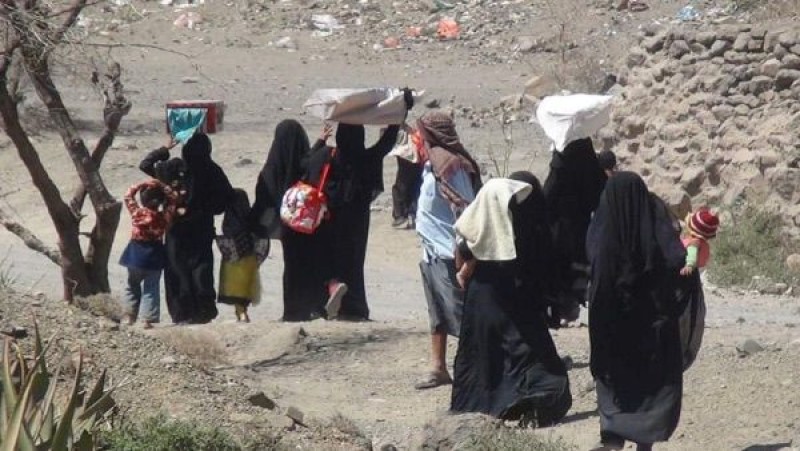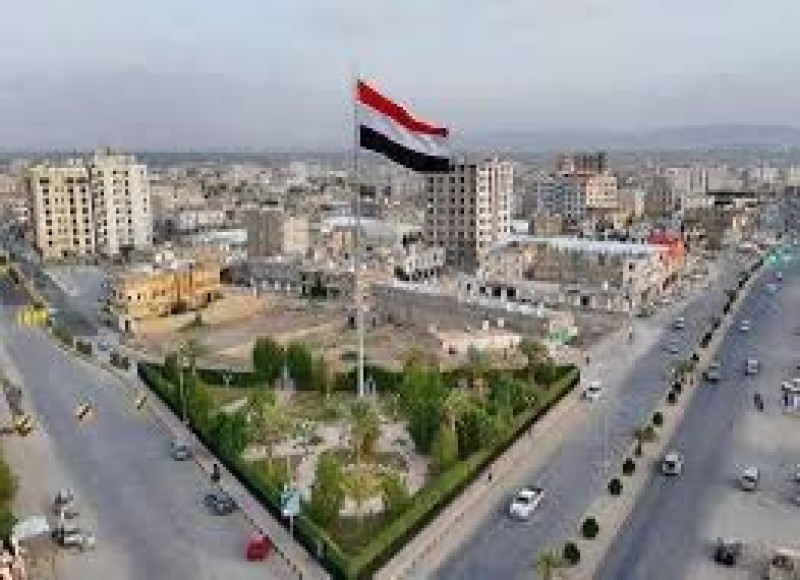Numbers of malnourished women on the rise in Yemen


Mayasa sits on her son’s bed in Abs general hospital in Yemen’s Hajjah governorate. Two-year-old Mohammad was admitted to the hospital’s inpatient therapeutic feeding centre after he was diagnosed with malnutrition accompanied by pneumonia and diarrhoea.
Mohammad has not been accepting any food for a while. When he was a baby, Mayasa could not afford formula milk, so she fed him on cow’s milk, bread and potatoes. This is Mohammad’s fifth stay in the therapeutic feeding centre, the first time being when he was just six months old.
The therapeutic feeding centre at Abs hospital is supported by Médecins Sans Frontières (MSF), but even though Mohammad’s treatment is free-of-charge, Mayasa has had to go into debt to cover the high transport costs from their house, a two-to-three hour journey from Abs.
Despite this, Mayasa never fails to bring her son to hospital when he falls sick. She cares deeply about her children’s health, sometimes at the expense of her own. Now pregnant with her fourth child, she became malnourished four months into the pregnancy.
“My children went to their uncle’s house for breakfast and I left for the hospital this morning on an empty stomach,” says Mayasa. “I do not have money for food. If I eat in the morning, I have nothing left for lunch and dinner.”
Like many Yemeni mothers, Mayasa worries every day about how she will feed her children, and faces the choice of feeding herself or leaving her share for them.
“We are seeing a lot of caretakers in the inpatient therapeutic feeding centre who are themselves malnourished,” says Dr Hilaire Pato, MSF peadiatrician in Abs hospital. “This is due to food insecurity in Yemen. If a woman is malnourished, it is hard for her to support her baby.”
This is echoed in the hospital’s maternity department. Saada, who is in her ninth month of pregnancy, has just been admitted due to bleeding and an obstruction of the bowel. She is also malnourished. Saada had no antenatal check-ups during her pregnancy due to the prohibitive cost of getting to the nearest health centre.
Saada’s hometown is “dead”, as she puts it, with no jobs or ways of earning a living. Her family of eight struggles to find enough to eat. “We eat bread and tea, but we don’t eat any meat or fish,” she says. “We used to receive food aid – a bag of flour and a bottle of oil only – but it stopped five months ago.”
MSF staff measure the mid-upper arm circumference of all women admitted to the maternity department in Abs to determine their nutrition status. Numbers of women with either moderate or severe malnutrition have increased steadily over the past two years.
In 2021, 51 per cent of women admitted for maternity care at Abs hospital were malnourished, while four per cent had severe acute malnutrition.
In 2022, this rose to 64 per cent, with 6 per cent suffering from severe acute malnutrition. By February 2024, a massive 68 per cent of women admitted to the maternity department were malnourished.
Sixty kilometres away from Abs, in the MSF-supported Al-Qanawis mother and child hospital in Al-Hodeidah governorate, it is a similar picture. In 2023, 47 per cent of women admitted were malnourished, rising to 49 per cent in February 2024.
“Pregnant women with malnutrition are at a greater risk of complications during pregnancy and delivery, the main one being iron deficiency or anaemia,” says Dr Pato. “A malnourished woman has a high risk of having a malnourished baby. It will also be harder for her to breastfeed her child.”
The risk of malnourished mothers giving birth to babies who are themselves susceptible to malnutrition is clear from MSF’s nutrition programme in Abs, where 24 per cent of all admissions in 2023 were children under six months old.
In an effort to detect women and children with malnutrition and prevent their condition from getting worse, MSF community health workers go door-to-door in Al-Hodeidah governorate to measure the mid-upper arm circumference of children, pregnant women and new mothers. All those who show signs of malnutrition are referred to the nearest health centre with therapeutic feeding capacity.
However, MSF community health workers have reported challenges in ensuring continuity of treatment for pregnant women and new mothers with malnutrition, as there are major gaps in such programming in regional health centres.
The malnutrition crisis in Yemen has many underlying causes. After over a decade of conflict and an unrelenting economic crisis, many people in Yemen have lost their livelihoods. High inflation rates have reduced people’s purchasing power so they can no longer afford enough nutritious food. Diminishing food aid distributions, including the suspension of the World Food Programme (WFP)’s General Food Distributions in northern Yemen, have exacerbated an already dire situation.

Aden — The International Organization for Migration (IOM) reported that more than 24,000 people have been internally displaced in Yemen since…

MARIB — Security sources reported that police in Marib governorate have opened investigations into two separate suicide incidents that occurr…

Hodeidah — Two members of the Iranian-backed Houthi militia were killed and five others wounded in a landmine explosion near Hodeidah airport…